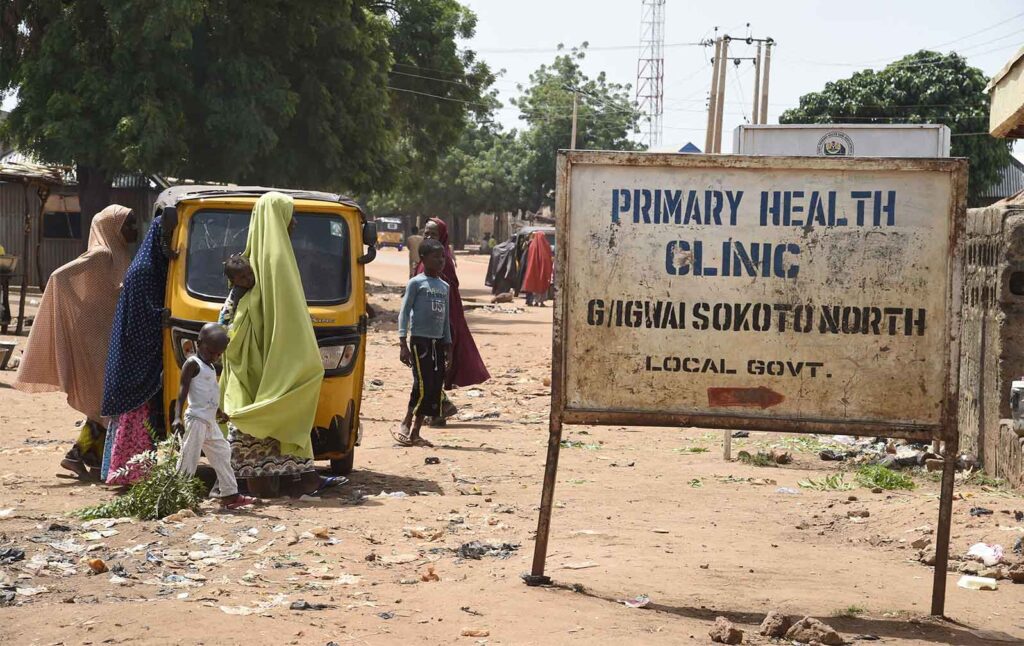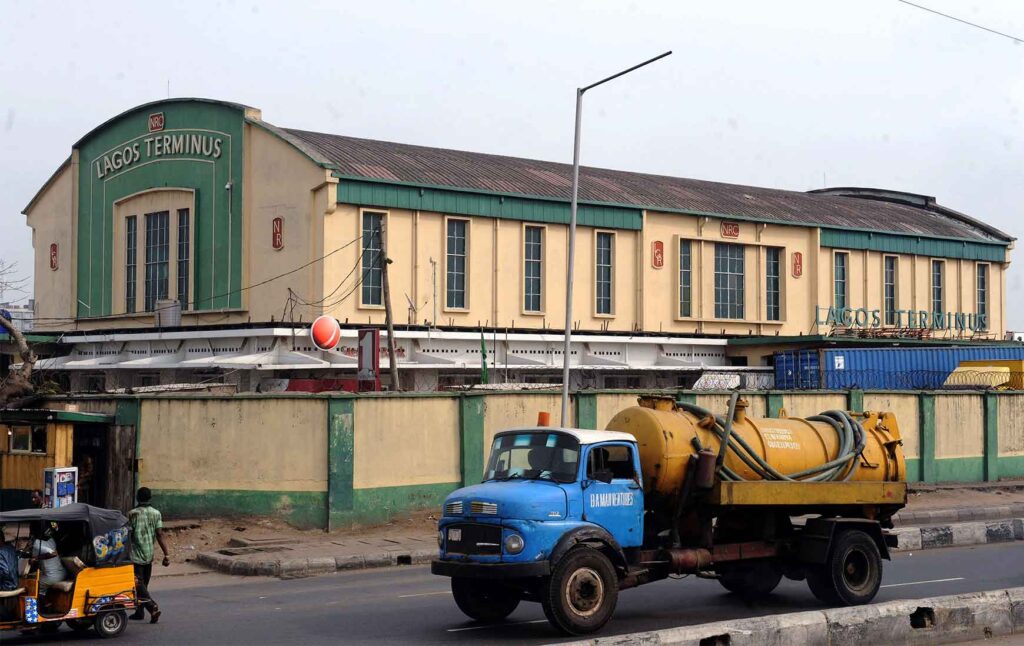Local governments are essential components of democratic systems worldwide. They are responsible for addressing the needs of local communities and residents and play a vital role in governance. The unique position of local governments allows them to develop policies tailored to their regions’ specific context. They understand the challenges and opportunities within their boundaries because they are dedicated to a particular geographic area. This proximity to the community enables them to respond promptly to their constituents’ unique issues. Local governments are not just service providers but also critical catalysts for local development and enhancing the quality of life.
Local governments in Nigeria, with the third tier closest to people, face significant challenges in providing fundamental services such as health, education, housing, water, and sanitation. Despite their proximity to the populace, deficiencies in service delivery highlight the need for improved local governance effectiveness. Addressing the specific needs of communities is critical, and the effective management of local governments can play a vital role in steering the country’s development towards a more impactful trajectory. This article aims to provide concise insights and practical solutions that fortify local governments for efficient service delivery and sustainable development within communities by dissecting these elements.

In practice, the promises of effective local governance in Nigeria frequently go unfulfilled, leaving citizens to grapple with the realities of unmet essential needs. The prevailing experience for many Nigerians is one of self-reliance, as local governments struggle to consistently deliver on their designated functions. This disjuncture between the envisioned roles of local governance and the daily experiences of citizens emphasises the urgent need for a comprehensive reassessment of existing systemic challenges.
As Daniel Jordan Smith notes in an article titled ‘Every household its own government’, published in Africa Today last year, when basic services are not reliably provided, communities are forced to find ways to address their own needs. This significant difference between what is expected and what happens highlights the need for reforms that can transform local governments into dependable providers of essential services.
The challenges faced in service delivery emphasise the necessity of re-evaluating and strengthening local government structures. To harness their full potential, local governments must transition from solely administrative bodies to dynamic agents capable of driving tangible improvements in the quality of life for citizens.
This article navigates the intricacies of bolstering the capacity of local governments in Nigeria, particularly in fund acquisition and strategic use for enhanced service delivery. Woven into this exploration are five crucial considerations, namely the impact of fiscal autonomy on local development, the interplay of resource allocation and citizen participation, leveraging untapped competitive advantages, addressing capacity gaps through strategic measures, and balancing service delivery with economic development. This article aims to provide practical solutions that strengthen local governments, promote efficient service delivery, and support sustainable development within communities.
Enshrined in Nigeria’s constitution, local governments stand as the explicitly listed and indispensable third tier of government. Their constitutional mandate points out their importance in ensuring governance reaches the grassroots level and meets the diverse requirements of everyday Nigerians.
Each local government in Nigeria operates under a council headed by an elected chairperson and vice chairperson and is made up of multiple councillors who represent different wards. They serve as the legislative branch and work together to address the unique needs and concerns of their communities. This decentralised and representative structure ensures that local governance is collaborative and inclusive.
Nigeria’s local governments receive their primary funding from monthly allocations from the central government, which is supplemented by an expected contribution from state governments. However, in practice, only a few states meet this expectation. Until 2019, the allocation system directed funds into each state’s Joint Local Government Account (SJLGA), giving state governors direct access to these funds. In recent times, however, there has been a shift towards a more direct approach, with most local governments now set to receive their funding directly. In addition to these allocations, local governments are now empowered to enhance their financial capacity by generating revenue internally through specific taxes and fees. This will help them to be less reliant on external funding and provide better services to their constituents.

But while local government autonomy is ostensibly acknowledged in Nigeria, the reality paints a different picture because the Constitution allows state legislatures to exert significant control over local government activities. This situation has allowed state governors to hinder local governments from fulfilling essential duties like delivering basic services. State governments wield control beyond mere fiscal oversight; they permeate the very fabric of local governance, encroaching into critical domains such as budgeting and planning. The result is that local governments are required to follow the instructions of state authorities before initiating any significant development projects. This structural dependence fundamentally undermines the autonomy that local governments should ideally have to meet the unique needs of their communities.
At first glance, state government supervision may seem necessary. However, this oversight has unintentionally fostered an environment that promotes corruption. In certain cases, for example, project approval requirements have resulted in a system where kickbacks are exchanged, creating a worrisome pattern of corruption within the local governance framework.
Centralised control over local governments has also made it difficult to properly allocate finances. Typically, the central government deposits funds into the State Joint Local Government Account (SJLGA). The SJLGA serves as the designated account for local governments within its jurisdiction, consolidating both federal and state allocations. However, this financial consolidation becomes a double-edged sword, as state governors have been known to make deductions from the SJLGA, diverting funds for other purposes. Between 2008 and 2018, a substantial sum of $38 billion was disbursed to Nigeria’s local governments, yet tangible results remain elusive. In response, the Nigerian Financial Intelligence Unit issued a directive in 2019 to halt withdrawals from the SJLGA for purposes other than those intended. Despite this directive, some states have not complied with fiscal transparency requirements, highlighting challenges in local governance.
In Nigeria, salaries devour a staggering 80% of local government expenditure, according to an August 2021 report in Sahara Reporters. After salaries are paid and overheads deducted, the funds are often reduced even further by deductions by state governors, making it difficult for local governments to provide crucial services like water and sewage disposal. As a result, citizens who rely on the informal economy are forced to take on the role of service providers themselves. The impact of this is evident on the ground. This grassroots-level self-reliance is the disconcerting reality – citizens actively engaging in meeting their basic needs due to the inadequacies of local governments. Forcing citizens to take charge of their own needs has its challenges. For example, the absence of a structured and coordinated approach hinders citizen-led development efforts from seamlessly integrating into national development policies.
Local government failure to commit to infrastructure development in Nigeria has had severe consequences, worsening the country’s already significant infrastructure deficit, with estimates that it would require a colossal $1.5 trillion over 10 years to address pressing needs. Considering that relying solely on occasional, citizen-initiated efforts, no matter how well-meaning, is not enough to bridge the significant infrastructure gap, active and strategic local government participation is not just desirable but necessary to achieve comprehensive and nationally aligned development.
Nigeria’s local governance challenges require strategic alignment between citizen-led development initiatives and government policies. Collaboration could amplify grassroots initiatives, improve basic service delivery, and foster sustainable development. This alignment nurtures a more cohesive and coordinated approach to development and holds the transformative potential to amplify the impact of grassroots initiatives.

The pervasive capacity gap in Nigeria’s local governments is rooted in several contributing factors. One is the lack of training among most local government employees, who secure their positions through political patronage rather than merit. Instead, emphasis must be placed on competence and adequate skills as requirements for running local councils, so that they are not dumping grounds for political lackeys. Merit-based hiring and adequate capacity-building programmes are imperative.
Inadequate wages, with recurring payment delays, are another challenge. According to a report in Nigeria’s Vanguard News in July last year, 34 states owed local government workers billions of Naira in outstanding salary, gratuity, and pension obligations, with one state owing as much as 36 billion Naira ($42 million). Unpaid and poor wages cause skilled professionals to leave the local government, exacerbating the capacity gap. The problem of delayed and unpaid wages must also be addressed to restore workforce morale and encourage skilled professionals to choose job opportunities at local councils.
Local governments possess unique competitive advantages that are often overlooked. These can be in the form of local assets, such as universities, bustling markets, and thriving local businesses. By leveraging these assets, local governments can enhance their capacity for grassroots governance, leading to more effective and tailored solutions that address the diverse needs of their communities.
For instance, universities can contribute significantly to local development initiatives by providing intellectual capital and resources. Similarly, local markets and businesses can serve as economic hubs that offer innovative revenue-generation strategies. Local governments can establish a self-sustaining ecosystem that aligns seamlessly with their strengths and advantages by tapping into these advantages.
Recognising and harnessing these competitive advantages can help local governments fortify their capacities and generate reliable revenue and research. Moreover, it fosters a symbiotic relationship between academia and governance, paving the way for more effective and tailored solutions that address the diverse needs of grassroots communities. Incorporating public-private partnerships into grassroots service delivery stands as a pivotal strategy to bolster the effectiveness of local governments in meeting their mandates.
While third-party entities are already involved in activities like levy collection, as noted by Professors Ola Uduku and Taibat Lawanson in their article, ‘The challenges of governing Lagos, the city that keeps growing’ published in The Conversation in March 2022, the lack of transparency poses a significant challenge, making it difficult to track revenue and increasing the likelihood of corruption.
Private investments can be an alternative solution, but they can also be hindered by state legislatures overseeing local government capacities. Therefore, striking a balance between leveraging private investments to improve service delivery and implementing measures to enhance transparency in revenue collection is crucial for fortifying accountable and efficient local governance.
Local government in Nigeria is responsible for essential services, including but not limited to water supply and waste management. However, the current framework limits local government involvement in economic planning and development to recommending policies within their jurisdiction to a state economic planning commission.

Each local area has its own unique set of challenges, thus making the local government council best suited to pursue and implement local economic policies tailored to specific needs. However, Nigeria’s hierarchical control structure hinders local governments from addressing the day-to-day challenges ordinary Nigerians face.
A constitutional amendment is required to address this impediment to economic development. However, the likelihood of such an amendment is slim, given the potential resistance from states to relinquishing their political and administrative control over local governments within their jurisdiction. This constitutional hurdle highlights the need for a nuanced approach to empowering local governments to drive their economic policies.
Local governments can, however, proactively seek cooperation among themselves to navigate the constraints of centralised economic planning. By collectively designing economic policies that specifically address shared local issues, they can present a united front and jointly recommend these initiatives to the state commission. This collaborative governance effort requires local governments to identify strategic development projects that effectively tackle common challenges their communities face. For example, they could collaborate on initiatives such as the construction and maintenance of vital road arteries that connect different local government areas to facilitate the movement of goods and services and promote trade and tourism.
This approach not only underscores the importance of a unified and localised strategy for economic planning, but it also enhances capacity at the local level, gives credence to local officials, and ensures inclusion since it is assumed that the recommendations would have been reached via consultations and inputs from residents. This, likewise, promotes community ownership. By focusing on shared concerns, local governments can demonstrate the potential for comprehensive and community-centric solutions that reflect the unique needs of each locality.
It is, however, crucial to recognise that such a collaborative approach may face resistance or sabotage, as it will challenge the existing power dynamics and administrative control vested in state governments. Overcoming this resistance would likely require a nuanced and diplomatic negotiation process. It is pivotal for local governments to advocate for a more decentralised and participatory approach to economic planning to assert their role in shaping the development trajectory of their communities.
To conclude, local governance in Nigeria is a complex landscape that presents both challenges and opportunities. While local governments play an important role in providing essential services and driving development at the grassroots level, they face a range of issues such as lack of fiscal autonomy, limited resources, capacity gaps, and centralised control. These challenges are compounded by issues such as political patronage, inadequate training, and delayed wages, which further hinder the effective functioning of local government structures.
Despite these obstacles, there are ways to improve the situation. For instance, public-private partnerships can be strategically used to improve service delivery if transparency issues are addressed. Furthermore, local governments must collaborate to overcome centralised planning constraints by identifying shared issues and recommending joint initiatives to state commissions.
To address these challenges, a multifaceted approach is required. This includes constitutional amendments for greater autonomy, capacity-building programmes to enhance workforce skills, and advocacy for transparent and collaborative governance models. While the path to empowering local governments faces obstacles, the potential for positive change lies in the collective efforts of policymakers, communities, and stakeholders. By fostering cooperation, embracing innovative strategies, and advocating for decentralisation, local governments in Nigeria can evolve into dynamic agents of positive change, delivering impactful and tailored solutions to the diverse needs of their constituents.





